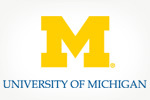Project Profile
Biosphere-Atmosphere Research and Training (BART 1)
University of Michigan
Abstract
This Integrative Graduate Education and Research Training (IGERT) award supports the establishment of a multidisciplinary, multi-institutional graduate training program of education and research in Biospheric-Atmospheric Research Training (BART) at the University of Michigan Biological Station (UMBS), in collaboration with eleven other universities. The purpose of this program is… more »
This Integrative Graduate Education and Research Training (IGERT) award supports the establishment of a multidisciplinary, multi-institutional graduate training program of education and research in Biospheric-Atmospheric Research Training (BART) at the University of Michigan Biological Station (UMBS), in collaboration with eleven other universities. The purpose of this program is to provide doctoral students with enhanced multidisciplinary training in the skills required for conducting research at the interface of the biospheric and atmospheric sciences. The over-arching research theme is to improve the understanding of the interactions and feedbacks that occur between biospheric and atmospheric properties and processes.
BART builds on the unique collection of scientists, research projects and academic programs that exist at UMBS. BART training will commence with a novel 10-week residential research experience. Students will conduct research using state-of-the-art equipment and facilities for conducting research on atmospheric composition, atmospheric flux measurements, and ecosystem dynamics. Each student will have two co-mentors for his/her doctoral career: an atmospheric scientist and a biospheric scientist. In addition to the residential research experience, students will receive continuing multidisciplinary training including: biannual workshops, and activities suppported through Internet discussion groups, and the BART web site.
IGERT is an NSF-wide program intended to facilitate the establishment of innovative, research-based graduate programs that will train a diverse group of scientists and engineers to be well-prepared to take advantage of a broad spectrum of career options. IGERT provides doctoral institutions with an opportunity to develop new, well-focussed multidisciplinary graduate programs that transcend organizational boundaries and unite faculty from several departments or institutions to establish a highly interactive, collaborative environment for both training and research. In this second year of the program, awards are being made to twenty-one institutions for programs that collectively span all areas of science and engineering supported by NSF. This specific award is supported by funds from the Directorates for Geosciences, for Biological Sciences, and for Education and Human Resources, and the Office of Polar Programs. « less






